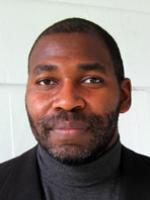=========================
John F. Haught is a Distinguished Research Professor at Georgetown University. He specializes in systematic theology, with a particular interest in issues pertaining to science, cosmology, evolution, ecology, and religion. He has authored numerous books and articles, including Science and Faith: A New Introduction (2012), Making Sense of Evolution: Darwin, God, and The Drama of Life ( 2010), God and the New Atheism: A Critical Response to Dawkins, Harris, and Hitchens (2008), Christianity and Science: Toward a Theology of Nature (2007), Is Nature Enough? Meaning and Truth in the Age of Science (2006), Purpose, Evolution and the Meaning of Life (2004), God After Darwin: A Theology of Evolution (2000, 2nd ed. 2007), Science and Religion: From Conflict to Conversation (1995), The Promise of Nature: Ecology and Cosmic Purpose (1993, 2nd ed. 2004), What is Religion? (1990), What is God? (1986), and The Cosmic Adventure: Science, Religion and the Quest for Purpose (1984). In 2002, Haught received the Owen Garrigan Award in Science and Religion, in 2004 the Sophia Award for Theological Excellence, and in 2008 a "Friend of Darwin Award" from the National Center for Science Education. He also testified for the plaintiffs in Harrisburg, PA "Intelligent Design Trial"(Kitzmiller et al. vs. Dover Board of Education). SOURCE - https://en.wikipedia.org/wiki/John_F._Haught
+++++++++++++++++++++++++
James Baldwin, arguably America's greatest black writer, was a popular Pentecostal preacher in Harlem at age 14 - but at 17 he renounced religion as a sham.
Years later, he described his boyhood transformation in an essay titled Down at the Cross, first published in The New Yorker, then reprinted in his civil rights book, The Fire Next Time.
He told of growing up amid the bitter hopelessness of the black ghetto, watching jobless men drink and fight, resenting tyrannical treatment by his preacher stepfather, wishing for escape. The misery around him "helped to hurl me into the church," he wrote.
One night at a prayer meeting, "everything came roaring, screaming, crying out, and I fell to the ground before the altar. It was the strangest sensation I have ever had in my life." He soon became a junior minister at the Fireside Pentecostal Assembly, and became "a much bigger drawing card than my father."
"That was the most frightening time of my life, and quite the most dishonest, and the resulting hysteria lent great passion to my sermons - for a while," he said. Considering all the evils of Harlem street life, "it was my good luck - perhaps - that I found myself in the church racket instead of some other, and surrendered to a spiritual seduction long before I came to any carnal knowledge."
The "fire and excitement" of Pentecostalism were captivating, Baldwin wrote -- but he sensed subconsciously that it was bogus, and by 17 suffered "the slow crumbling of my faith." It happened "when I began to read again.... I began, fatally, with Dostoevski."
He continued handing out gospel tracts, but knew they were "impossible to believe."
"I was forced, reluctantly, to realize that the Bible itself had been written by men." As for the claim that the Bible writers were divinely inspired, he said he "knew by now, alas, far more about divine inspiration than I dared admit, for I knew how I worked myself up into my own visions."
Baldwin wrote that he might have remained in the church if "there was any loving-kindness to be found in the haven I represented." But he finally concluded that "there was no love in the church. It was a mask for hatred and self-hatred and despair." So his religion ended.
Years later, he visited Black Muslim leader Elijah Muhammad and concluded that Elijah's "revelations" about Satan creating "white devils" were just as irrational as Christian beliefs.
When Elijah asked his faith, Baldwin replied:
"I left the church 20 years ago and I haven't joined anything since."
"And what are you now?" Elijah asked.
"I? Now? Nothing," the great writer replied.
By James A. Haught
Author/Editor/Journalist
Haught, editor of the Charleston Gazette, has several books including Holy Horrors: An Illustrated History of Religious Murder and Madness (Prometheus, 1990) and Holy Hatred: Religious Conflicts of the '90's (Prometheus, 1995).
Haught's writings can be found at his web site http://www.wvinter.net/~haught.
---
Haught is the editor of 2000 Years of Disbelief, Famous People with the Courage to Doubt (Prometheus Books, 1996)





